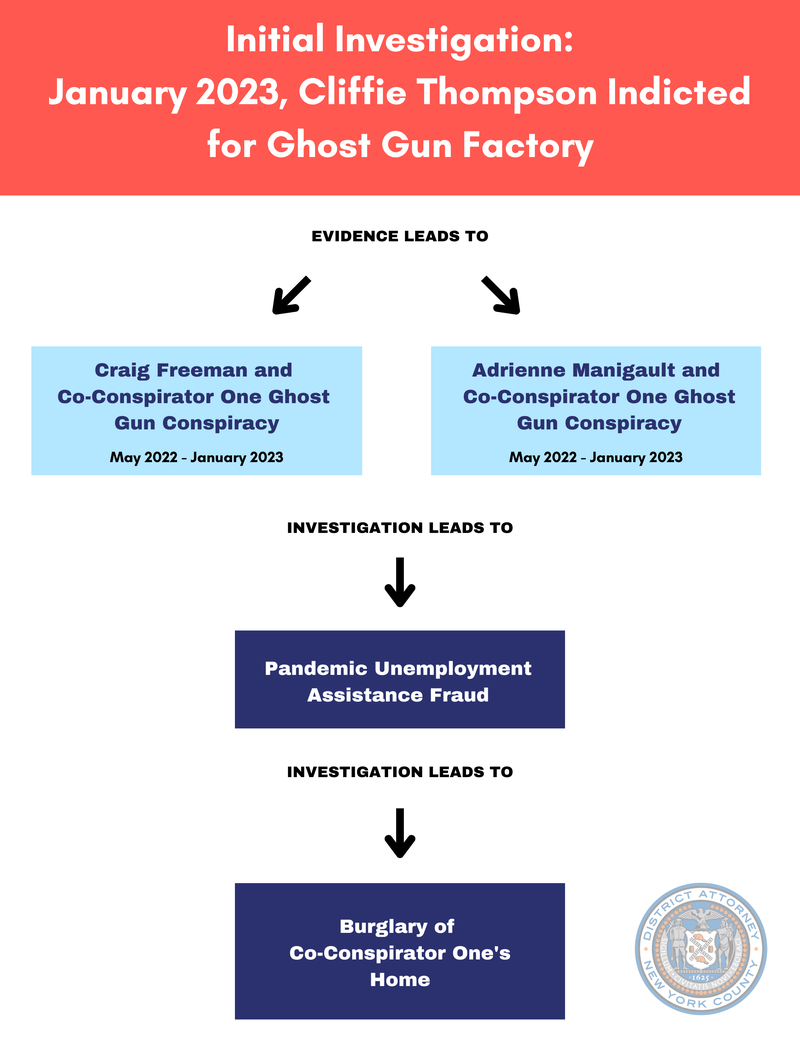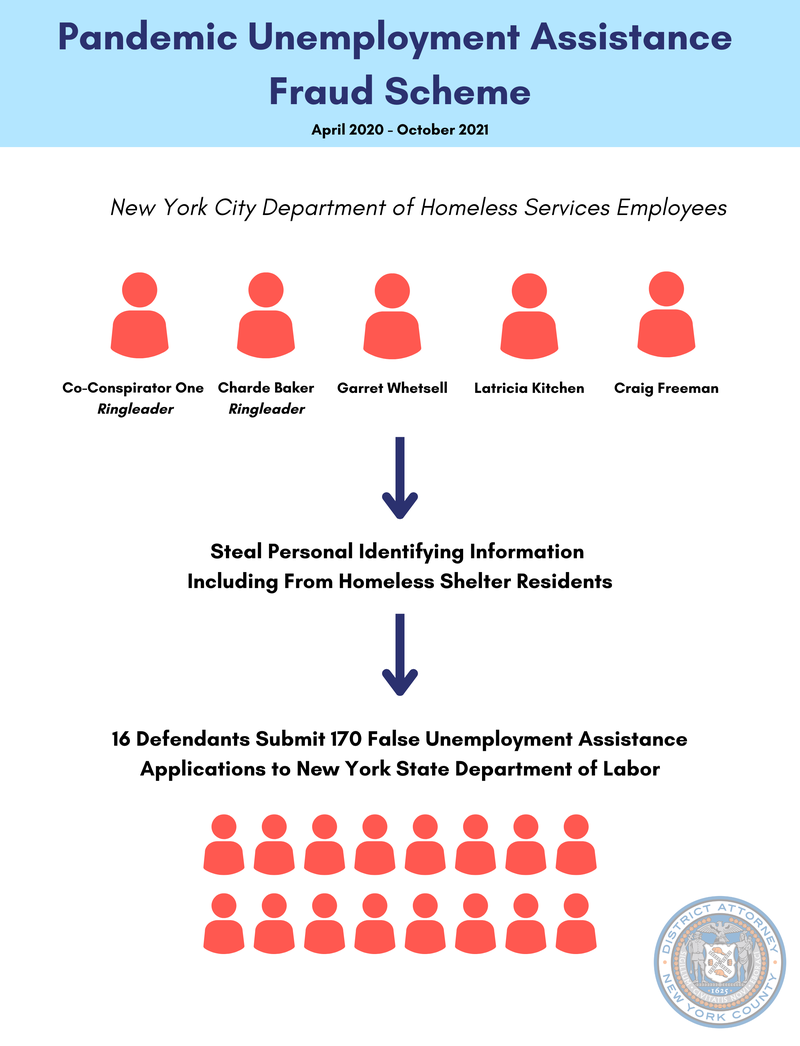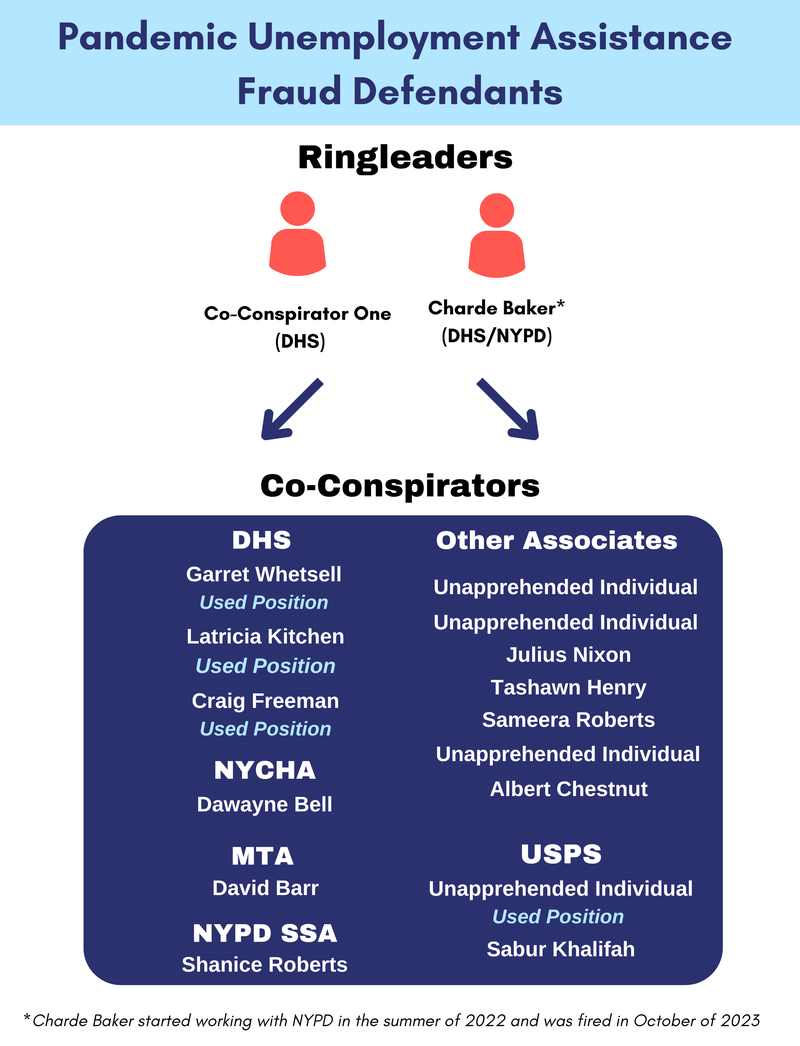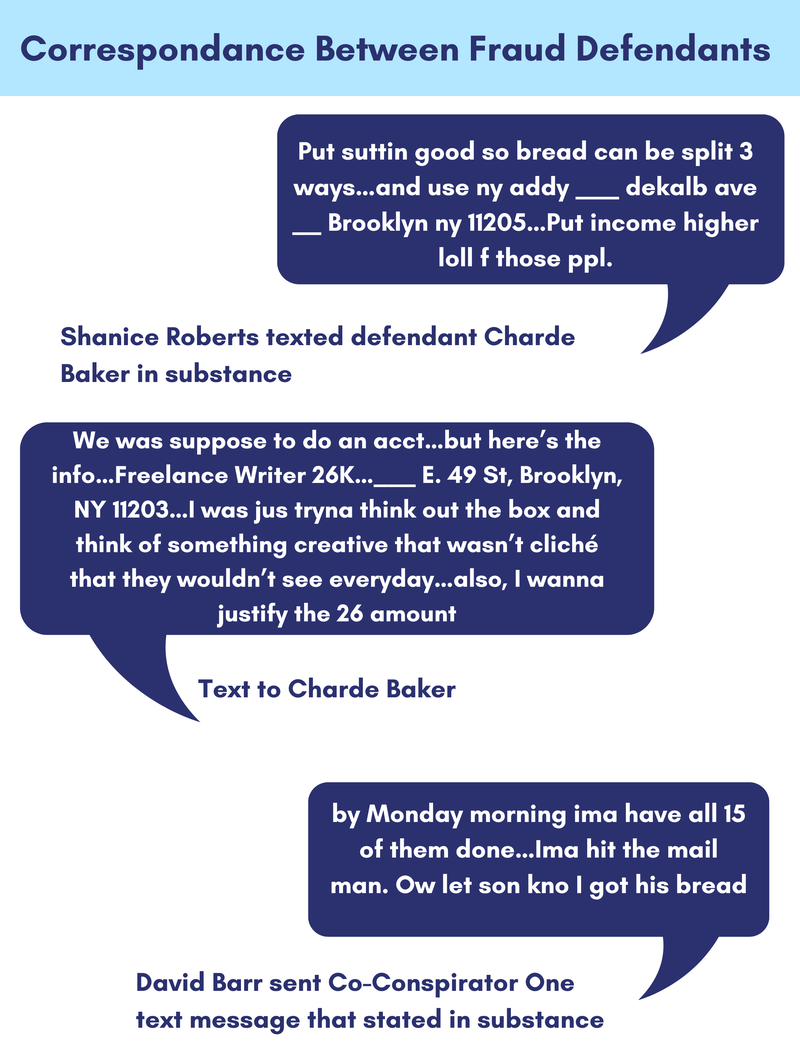
NEW YORK (1010 WINS/WCBS 880) — Manhattan District Attorney Alvin Bragg, Jr. announced four indictments charging 18 people on Thursday, all of which resulted from a sprawling investigation into two conspiracies to manufacture ghost guns that uncovered a fraud scheme and a residential burglary.
“Today it is one of those type of matters where we have street crimes and white collar fraud intertwined, and it’s another demonstration of why we’re so vigilant in that intersection,” Bragg said at a press conference.
The indictments resulted from a 2022 investigation into a ghost gun factory in Cliffie Thompson’s East Village apartment, for which he was indicted in January 2023, prosecutors said. The investigation uncovered two new ghost gun conspiracies.

Co-conspirator one and Adrienne Manigault, 25, are charged with fourth-degree conspiracy in one indictment for allegedly buying hundreds of dollars’ worth of ghost gun materials and 3-D printing machines used to manufacture weapons from May 14, 2022 until Jan. 21, 2023.
Manigault is also charged with tampering with physical evidence. She is accused of removing evidence before investigators could execute a search warrant.
“They would text each other links of where to purchase the parts, and then swap pictures and videos of the finished products,” Bragg said, citing Amazon and eBay as the source of many of the defendants’ materials.
Craig Freeman, 56, and co-conspirator one are charged with fourth-degree conspiracy in the second indictment. The two are accused of buying parts and manufacturing weapons from May 14, 2022 until Jan. 13, 2023, prosecutors said.
According to court documents and statements, co-conspirator one shared
3-D printing files, templates and links with Freeman so he could build his own weapons. Many of the resources in this indictment were the same as in the first indictment, officials said.
Both Freeman and co-conspirator one worked at the Barbara Kleiman Shelter in Brooklyn as part of the Department of Homeless Services, and evidence in the ghost gun conspiracies led to the discovery of a conspiracy to defraud the Pandemic Unemployment Assistance (PUA) program.
The PUA fraud was allegedly led by co-conspirator one and another DHS employee, 35-year-old Charde Baker.
Baker worked at the DHS before she began working at the NYPD in 2022, but was fired the next year and rejoined DHS.
According to Bragg, co-conspirator one and Baker were the ringleaders of the PUA fraud scheme, in which DHS employees allegedly used their positions to steal personal identifying information of homeless residents in order to use their names to submit fraudulent PUA claims to the NYS Department of Labor


Co-conspirator one, Baker, Freeman, two other DHS employees and 12 other people are charged with fourth-degree conspiracy in the alleged scheme. Many of the defendants are also charged with grand larceny, or other related charges.
The scheme took place between April 17, 2020 and Oct. 5, 2021, prosecutors said.
Authorities accuse the defendants of submitting 170 fraudulent applications that netted them $1.2 million in payouts. According to prosecutors, the funds were used for lavish expenses, like international vacations.
Once the fake applications were accepted, the DOL issued bank cards to addresses that the defendants had control over. These included their own home addresses, as well as addresses on an Upper East Side mail route run by co-conspirator three, a USPS employee who would intercept the mail and hand-off the payouts.
“Many of the other defendants in this scheme worked for government agencies including NYCHA, the NYPD, USPS and the MTA,” Bragg said Thursday, while noting that only those who worked with the DHS and USPS directly utilized their position as a public servant to further the scheme.
The final indictment charges Baker and two others, one of which who has yet to be arraigned, with second-degree burglary, for breaking into co-conspirator one’s home.

According to court documents and statements, Baker sent texts accused co-conspirator one of withholding thousands of dollars the group scammed through the PUA fraud scheme, leading to the break-in on Nov. 15, 2020.
“This is just great, old-fashioned law enforcement work where you start pulling at threads, you bring a great case, and you don’t stop there,” Bragg said. “You don’t stop just because you charged the one crime, you keep pulling at the threads to see what are the other harms to the public.”
